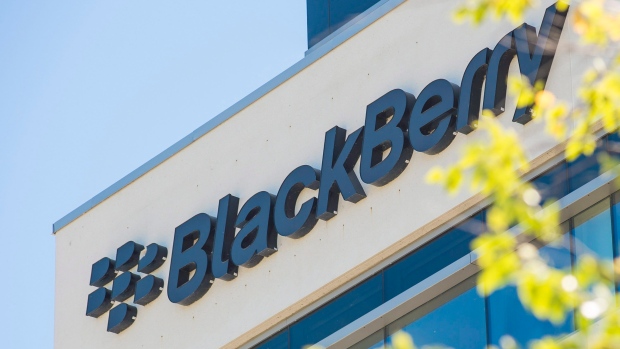Jul 19, 2016
BlackBerry inks U.S. government software deals; shares slip
, Reuters

NEW YORK/TORONTO - BlackBerry Ltd said on Tuesday it had signed a five-year, multimillion-dollar deal to run emergency notifications for the U.S. Senate, among a handful of small deals the company unveiled as it shifts its focus to software from smartphones.
The Canadian company also said that AtHoc, a crisis communications firm it bought last year, had expanded a deal with the U.S. Coast Guard to cover staff in Washington, D.C. BlackBerry did not provide financial details of the deals.
BlackBerry unveiled the new deals at its security summit in New York to illustrate its pivot from smartphone maker to corporate and government IT supplier, which some critics complain is taking too long to deliver meaningful results.
"We're going to have to see a lot of these types of deals from them going forward to really get the sense that they are moving in the right direction," said Phil Hochmuth, program director for enterprise mobility at International Data Corp.
BlackBerry shares were down 1.9 per cent at US$6.60 in midday trade on the Nasdaq, and 1.3 per cent lower at C$8.60 in Toronto.
The Waterloo, Ontario-based company said the U.S. Department of Defense, one of its largest customers, had given additional technical approvals to both its mobile management system and phone software, giving it an advantage as a preferred vendor.
It also said it had teamed up with a company called AppDome to allow corporate coders to translate apps made for other systems for use with BlackBerry systems, and inked a deal for its QNX industrial operating system to be used in electric locomotives being developed in Turkey.
"It's a little bit of a smorgasbord," said Jack Gold, an analyst at J. Gold Associates. "For some customers, it's hard for them to describe the overall strategy and vision."
IDC's Hochmuth said the next big test for BlackBerry is if it can strike more deals in the private sector.
The Canadian company is moving its focus from its once-dominant smartphones to software that companies and governments use to manage mobile devices. Its adjusted revenue from software overtook diminished handset sales last quarter.




